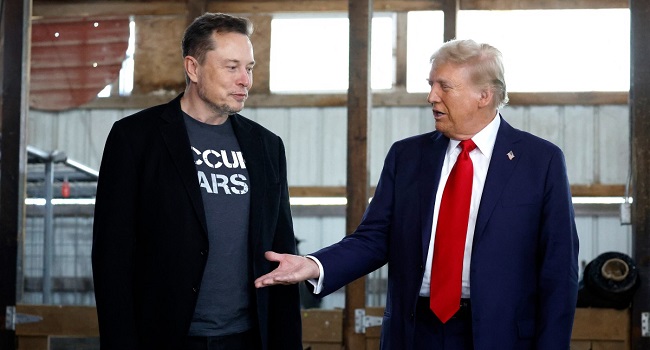The United States is teetering on the edge of a government shutdown during the holiday season after a last-minute intervention by Donald Trump and Elon Musk disrupted efforts to secure a short-term funding agreement.
Federal funding is set to expire Friday night, and while Congress had initially reached a compromise on a temporary funding bill, resistance emerged. Critics in the House called out the bill’s excess spending, labeling it as wasteful. Despite this, the proposal seemed likely to pass—until Musk took to social media.
Using his massive platform, Musk criticized the bill, sharing claims that ranged from exaggerated to misleading. Hours later, Trump and Vice President-elect JD Vance released a statement opposing the legislation, unexpectedly demanding the inclusion of a debt limit increase.
Raising the debt ceiling typically involves weeks of deliberation and legislative drafting. With the clock ticking, this sudden demand has left Congress scrambling, as essential federal services face closure starting Saturday.
A government shutdown would disrupt countless operations, including the closure of national parks and the furlough of hundreds of thousands of workers. Many employees risk going without pay during the holiday season, compounding the crisis.
House Republicans, led by Speaker Mike Johnson, are under intense pressure to find a solution. Johnson has faced criticism for miscalculating his party’s support for the bill and for being caught off guard by Trump and Musk’s influence.
Democrats, controlling the Senate, are holding firm, insisting on the original bipartisan agreement. Without their cooperation, Republicans must resolve the situation on their own—a challenge for the deeply divided party.
The standoff jeopardizes billions in critical funding, including disaster relief for communities hit by recent hurricanes and financial aid for farmers. The added debt ceiling debate only complicates matters, as conservatives resist any increase in the country’s $36.2 trillion borrowing cap.
While Trump insists that all negotiations should be completed before his administration begins, Democrats argue that addressing the debt limit now is unnecessary, as the deadline won’t arrive until mid-2025.
With just hours left, the question remains whether Congress can avert a shutdown or whether millions of Americans will face disruption during the festive season.


